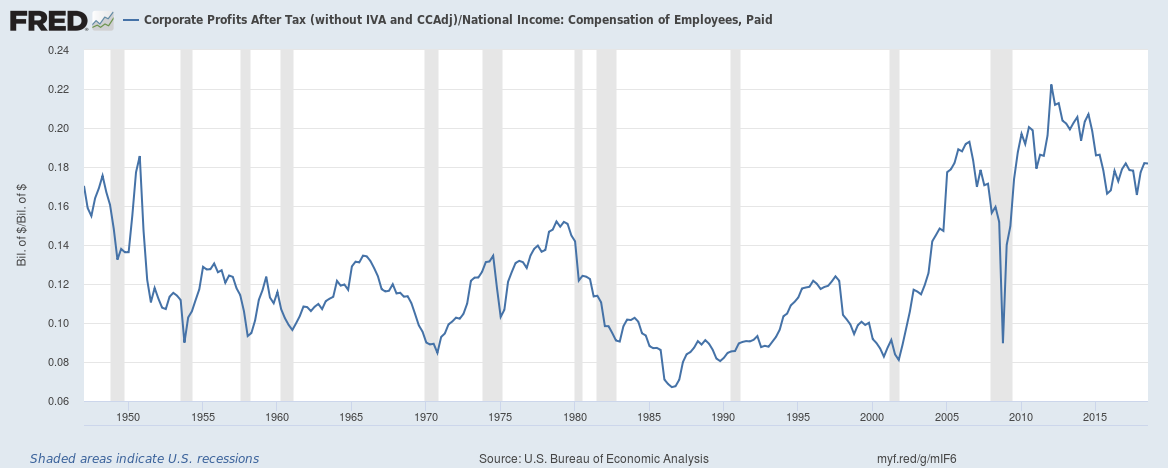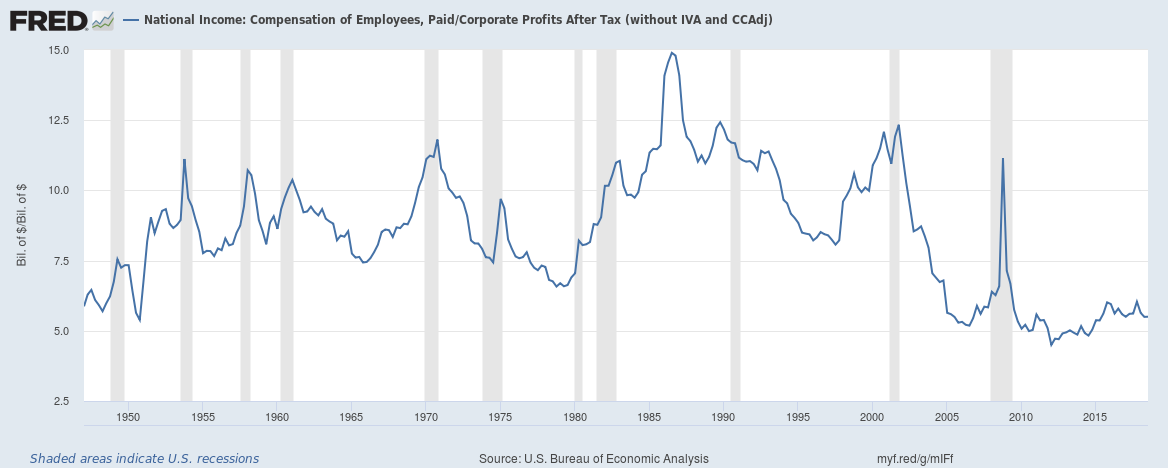In September last year we wrote why wages weren’t rising despite record employment and labour shortages and earlier this month we wrote that U.S. Corporate profits have been growing well and have hit a record high. We explore another angle, total wages (wages including bonuses and overtime – all before taxes) to the corporate profits (before taxes) ratio.
We can look at it two ways, either the total corporate profitability to total wages ratio (which stands at 0.18 or $1 in total wages generates $0.18 in profits)

Or total wages to total corporate profitability ratio (which stands at 5.5 or $1 in profit is generated for $5.5 in total wages),

Whichever way you look at it, corporate profitability has been growing far quicker than the total wage bill. This despite a buoyant labour market. Another insight is that the wage to profitability ratio is close to a record low.
There could be multiple reasons,
· Machines or robots have replaced humans thereby increasing productivity and corporate profitability
· Wage growth has been supressed due to decline in union membership and because workers have become less likely to move to a different location or to a different job for a better wage
· There are fewer start-ups and lesser corporate competition (there are far fewer corporations in the U.S. than there were three decades ago)
· Corporations are able to improve margins by increasing prices higher than inflation (we have recently seen Amazon increase prices of their Prime Membership in the U.S. and Netflix announced increase in subscription prices in the U.S. – both price hikes were about 8 times consumer price inflation)
We will explore each of the reasons over the next few weeks but in the meanwhile here is one thing to think about – will machines really take over most jobs in the future?
Related:
Here’s why wages aren’t rising despite record employment and labour shortages
U.S. Corporate profits have been growing well and have hit a record high
The machines are slowly learning but they can and will be fooled